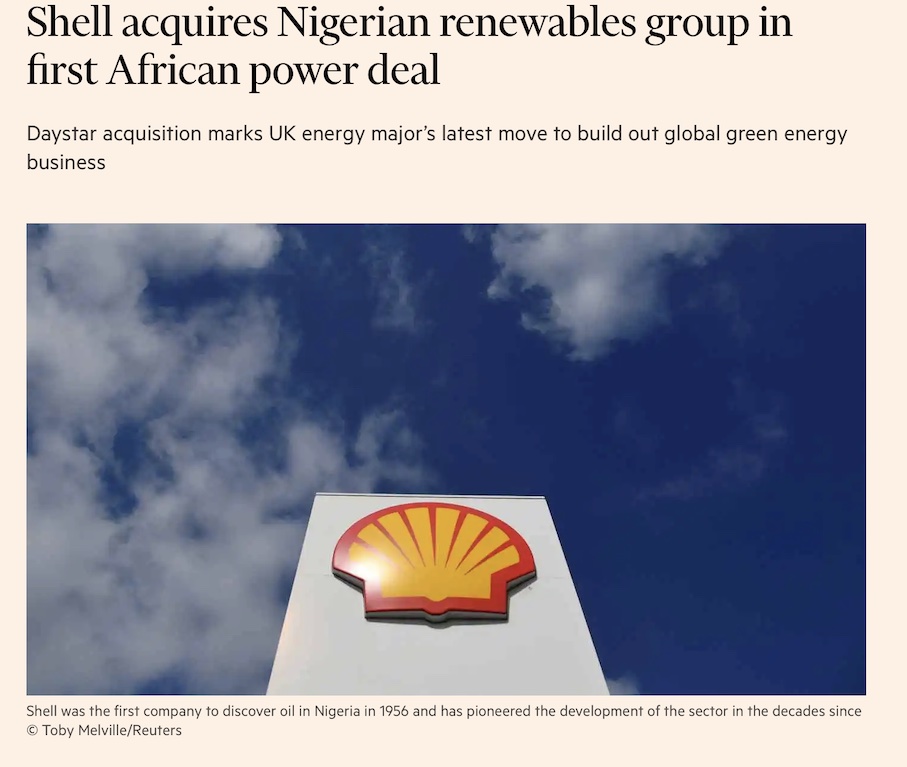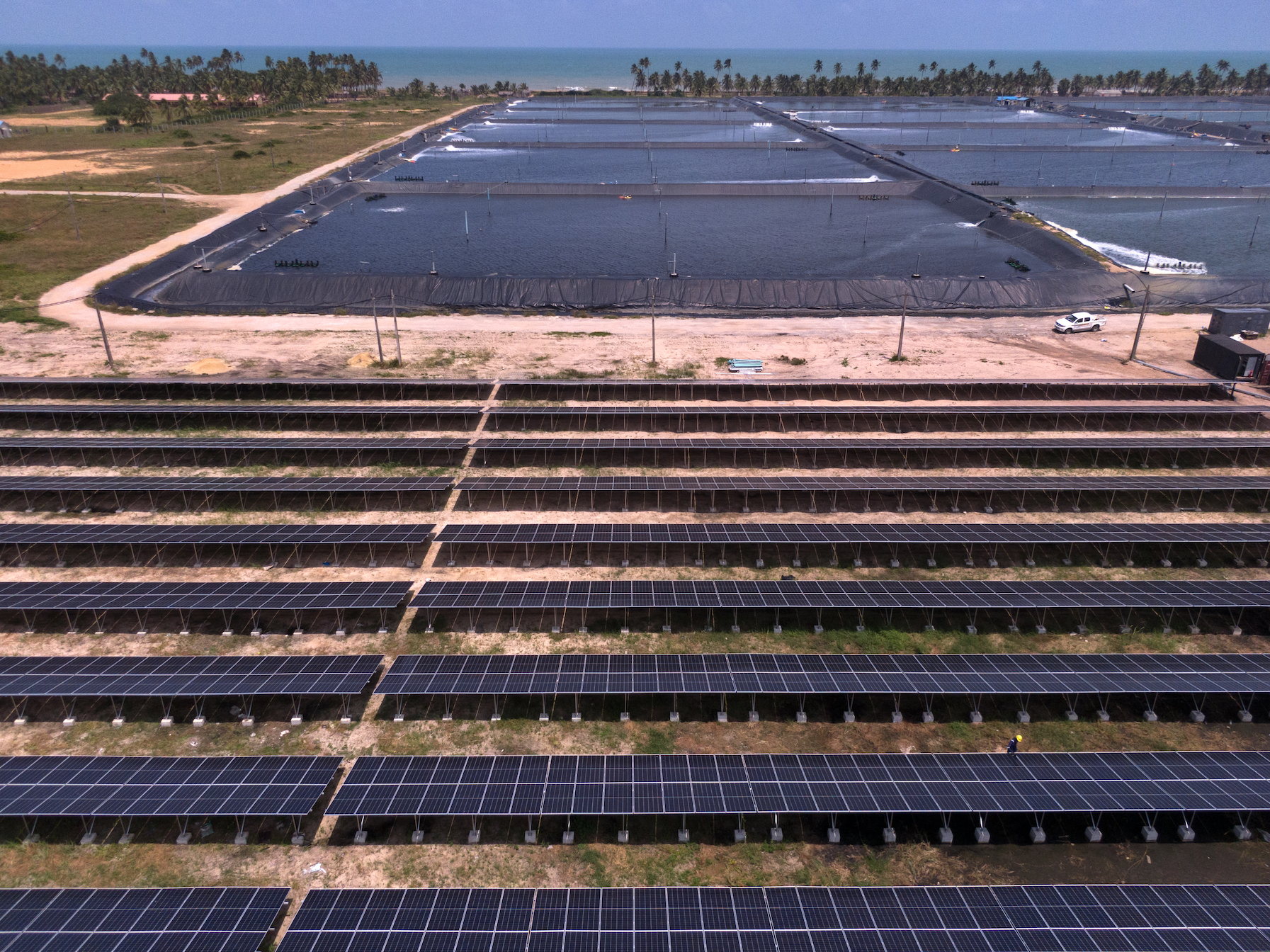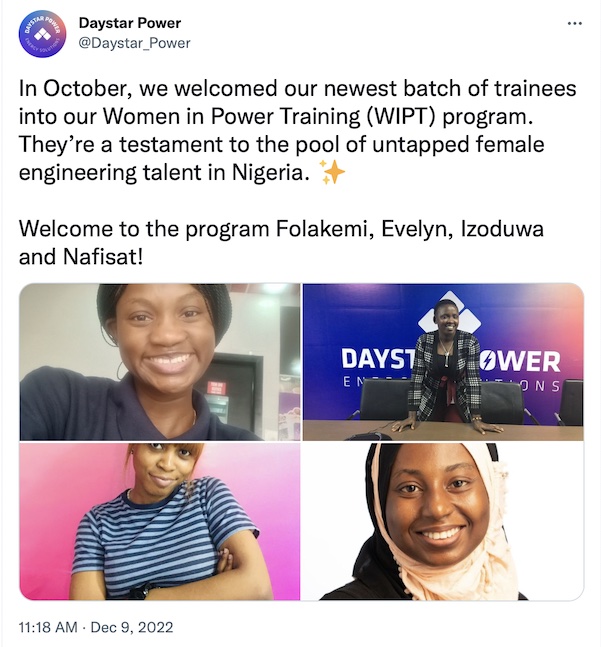This year was a turning point for our business.
In a massive milestone, we were acquired by Shell.
Despite ongoing supply chain challenges that have affected the solar energy industry globally, our installed solar capacity surged by 135%, a company record.
We’ve also started to commission larger solar installations for industrial manufacturers, added natural gas generators into our PaaS offerings, and grown our battery storage services.
It was not just a big year for us. A confluence of factors have led Africa’s commercial & industrial solar (C&I) industry to reach a tipping point as our CEO Jasper Graf von Hardenberg wrote about in a recent PV Magazine op-ed. High diesel costs and creaky power grids will continue to push more African companies to integrate solar into their energy mix.
In this post, we want to recap our highlights for the year. It’s like Spotify Wrapped but for renewable energy. It’s our #DaystarWrapped.
1. We joined Shell
Earlier this year, Daystar was acquired by Shell, its first purchase of a power business in Africa. This acquisition is truly a game changer. By teaming up with Shell, we can accelerate our roll-out of clean and affordable energy systems to commercial and industrial businesses across the continent. By 2025, we aim to increase our installed solar capacity by 809% to 400MW.

Shell’s expertise in compressed natural gas (CNG) will be pivotal in expanding our PaaS offering to include gas-powered generators that run in tandem with solar energy. CNG is a light and environmentally friendly fuel. It is also 70% cheaper than diesel at current market prices of 800 naira per liter. When used in conjunction with solar, natural gas delivers significant cost savings and emits a fraction of the greenhouse gasses as compared to diesel.
2. 135% surge in installed capacity
Despite ongoing supply chain issues that led to long delays of equipment, we grew our installed capacity by 135% to 44MW – a company record. Now that the commercial and industrial (C&I) solar model has been in West Africa for more than five years, the majority of large industrial manufacturers and corporations understand its benefits: the cost savings compared to diesel generators and not having to pay upfront costs to own the power system.
And then in March, diesel prices shot up by three-fold due to the Russian invasion of Ukraine. This led to businesses - particularly in Nigeria - scrambling to lower energy costs. We received a 3x spike in inbound sales leads, as businesses looked to add solar into their energy mix and reduce their dependence on costly diesel.
The combination of time – the C&I solar model is now well understood in the West African business community - and the urgency to control spiraling energy costs triggered a sea change in the market. While large businesses were once skeptical of solar, they are now believers.
3. Increase in >1MW solar installations
This year also marked a greater shift towards large scale solar systems that exceed 1MW. Industrial manufacturers want solar to power as much daytime load as possible to reduce energy costs and dependency on unreliable and expensive grid power. Since solar plants are modular in nature, it is easy to scale them up as factories look to expand production lines and need more power.
We are expanding a solar system at the Challawa factory of the Nigerian Bottling Company (NBC) in Kano to 6MW. By incorporating renewable energy into its power mix, NBC (which is also Nigeria’s largest manufacturer using renewables to power its operations) reduced its use of costly diesel generators at its factories and CO2 emissions.

We are also deploying a 6MW solar plant for the Seven-Up Bottling Company (SBC) in Ikeja, Lagos. We have already installed 2MW; the remaining 4MW is slated for 1Q23. The system will be able to provide up to 50% of the daytime power consumption when fully deployed. Some of our clients in Lagos have generated up to 86% of total daytime energy needs from solar power.
For Atlantic Shrimpers Ltd (ASL), a $100M shrimp farm in Badagry, Nigeria, we plan to expand its 950kWp solar system - our largest ground mounted installation to date - to 5MW.
4. Expansion into battery storage
We also expanded our battery business. While we installed our first battery storage in 2021 for Shaldag, a fish farm in Epe, Nigeria, we doubled our existing business this year, adding two new systems to our portfolio.
We installed a 540kWp solar installation with 830kWh battery for Krones, a manufacturer of bottling machinery and packaging. The solar system and battery powers the load 24/7. At night when loads are lighter, the battery takes over while solar charges and powers the battery during the day. While it is a small system, it is a clear demonstration of how solar and battery designs can take a client off diesel generators and the grid completely.
For Lagos Business School, our engineers designed and installed a 350kWp solar system and 152-kilowatt battery bank system. Made up of more than 40 batteries with a capacity of 3.5kilowatt hour, we were able to reduce LBS dependence on unreliable grid power and costly diesel generators. The battery configuration powers the business school’s critical loads after 6pm on weekdays and during the weekend.
Our biggest battery storage in the pipeline is by far for ASL. In addition to the solar expansion, we are going to integrate a 3.9MW/hour battery as a backup power source.
5. Acceleration of our Women in Power Training Program (WIPT)
This year, we saw small, yet important, growth in our Women in Power Training (WIPT) program. With support from IFU and Proparco, WIPT trains high potential women engineers for eventual recruitment into technical roles at Daystar. By building a pipeline of talented women engineers, we look to hire women for 40% of our technical and leadership roles by 2024.

When we first launched the program in 2020, we ran one cohort per year. Yet this year, we expanded to two groups. In October, we kicked off a small cohort of 4 trainees. The expansion confirms what we’ve always thought: there is a large pool of untapped female engineering talent in Nigeria.
Over the last two years, we’ve been delighted to watch the WIPT trainees grow into valuable Daystar team members.
Looking toward 2023
The 27th edition of COP27 held in Egypt brought Africa’s energy needs into the global spotlight. As we continue to confront economic and energy challenges in 2023, we take inspiration from Simon Stiell, Executive Secretary, UN Climate Change: “We have a series of milestones ahead. We must pull together with resolve through all processes, may they be national, regional or others such as the G20. Every single milestone matters and builds momentum.”
At Daystar Power, we aim to play our part in making clean energy available in underserved markets in Africa. We look toward 2023 with hope, optimism, and big plans to serve more African businesses with clean and affordable energy.
